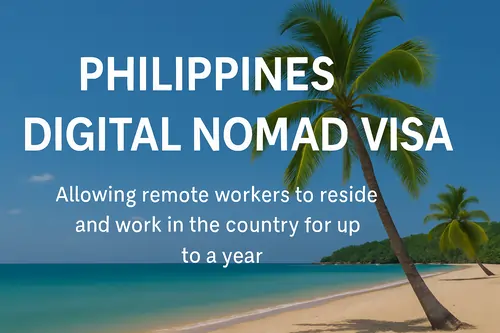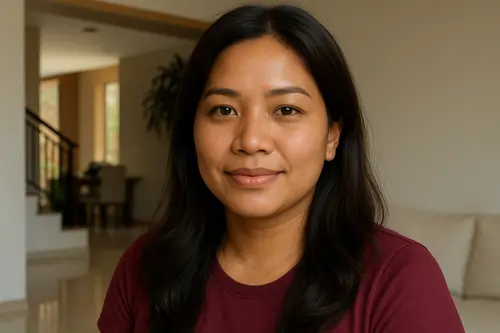Finally, a visa that lets you answer emails and chase sunsets.
The Philippines has just rolled out one of its boldest digital initiatives yet—a Digital Nomad Visa, tailor-made for remote workers looking to swap cubicles for coconut trees.
Signed under Executive Order No. 86 by President Ferdinand Marcos Jr., this visa allows foreign digital professionals to legally live and work in the Philippines for up to one year, with an option to renew. The goal? To turn the country into a tropical haven for global freelancers, creatives, and remote tech workers—and in doing so, give the economy a modern tourism boost.

🧳 Who Is It For?
The Digital Nomad Visa is geared toward:
- Freelancers or contractors working for international clients
- Remote employees of foreign-based companies
- Entrepreneurs and digital entrepreneurs
- Content creators and online service providers
As long as your work is remote and your income comes from outside the Philippines, you’re likely eligible.
🇵🇭 Why the Philippines?
Let’s be real—who wouldn’t want to work with this view?
🏝️ Over 7,000 islands
🌞 Warm tropical weather year-round
📶 Increasing access to high-speed internet
📍Affordable living
🧑🤝🧑 English-speaking locals and welcoming communities
According to Condé Nast Traveler, this visa is part of a global trend where countries like Spain, Portugal, and Indonesia have embraced the “workcation” economy. The Philippines is now joining that wave—with its own uniquely vibrant charm.
📈 Economic Boost, Tourism 2.0
This initiative isn’t just about attracting individuals with MacBooks and VPNs. It’s a strategic move to revive post-pandemic tourism, support local businesses, and bring in longer-staying visitors who contribute more consistently to the economy.
By welcoming skilled digital professionals, the country hopes to:
- Increase tourism revenue
- Create demand for local services (co-working spaces, cafes, transport)
- Showcase Filipino hospitality and lifestyle on the global stage
✈️ What Happens Next?
The implementing agencies—including Bureau of Immigration, Department of Tourism, and Department of Information and Communications Technology—are expected to finalize guidelines soon.
This includes:
- Application requirements
- Proof of employment/income
- Health insurance coverage
- Visa processing fees and extensions
🌐 Final Thoughts: From Tourists to Temporary Locals
The Philippines has always been a destination. But with the Digital Nomad Visa, it’s now becoming a base—a place where the world doesn’t just visit, but stays, works, and thrives.
So, to all the remote workers out there looking for sun, sea, and signal:
The Philippines is calling.
Written by OMGMarites News Team
For trending stories that matter and travel-news you can feel, follow us on:
📲 TikTok | 👍 Facebook | 🌐 omgmarites.com

Maria Theresa Mondragon, better known online as Antie Marites, is a 33-year-old Filipina content creator who’s turning “chismis” into credible news and meaningful conversation.
With a knack for storytelling and a passion for public service updates, Antie Marites creates relatable, informative, and bite-sized news content for the digital Pinoy. Whether it’s trending headlines, government announcements, or everyday life in the Philippines, she breaks it down in a way that’s clear, fun, and easy to understand—no filter, no fake news.
She’s the tita who sips her kape while scrolling DBM updates and turns it into your next viral TikTok.She’s also your go-to source for “real talk sa real-time news.”
Follow her journey and daily chika on:
📲 Facebook: OMGMarites
📱 TikTok: @omgmarites2025
